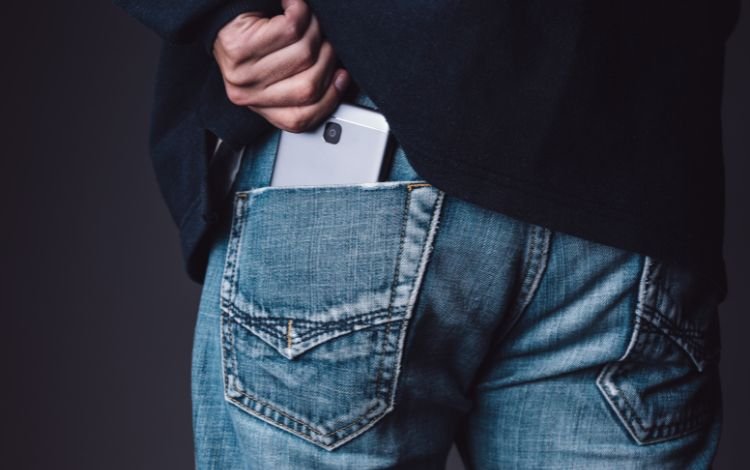Understanding the Impact of Childhood Trauma on LGBTQ Individuals
If you're LGBTQ+, childhood trauma can profoundly impact your mental health. Read on to find out how to unpack pain with self-care, celebrate your unique story, and build resilience - so you can live authentically as your true self.
In my work as a gay therapist, I've seen - and experienced - firsthand the impact that traumatic can have on the mental health and well-being of people in the LGBTQ+ community.
The trauma I speak of isn't always some vast, dramatic event. While many lesbian, gay, bisexual, and transgender individuals do experience dramatic events, trauma more often manifests in subtle ways. It's the pain of emotional neglect, of not getting that early acceptance from a family that we yearn for deep down, and of not feeling truly seen or heard as a child needing help navigating an often uninviting, scary world.
These formative oversights leave scars that last a lifetime if we don't work to heal them. And since chronic trauma (often referred to as CPTSD) can become internally normalized, it becomes toxic to our identity, happiness, self-worth, and self-esteem.
If any of this resonates with you, keep reading.
What is Trauma?
Trauma refers to experiences that shape us deep down, regardless of race, social status, sexual orientation, gender identity, or any other human characteristic.
By "deep down," I draw on the Compassionate Inquiry view that trauma is not about what happened to you. Instead, trauma is about how those events affect you emotionally long after - what Gabor Maté refers to as "the inner experience."
This inner experience matters more than the outer event. And if we are to heal from our past, we must embrace this mindset.
We must understand that what happened to us early on, especially in childhood, leaves impressions that affect how we feel, what we believe, and even our physical health later in life.
These inner experiences are at the heart of most, if not all, emotional struggles.
How Do LGBTQ+ People Experience Trauma?
Trauma can spring from all kinds of experiences. Not just from apparent bad things like abuse or neglect. Instead, they also occur from more subtle things like not getting our emotional or developmental needs met at key points in life.
A big piece of trauma is disconnection - from ourselves, our feelings, other people, and the world. While intended to protect us, these defense mechanisms can show up as various mental or physical problems down the road - addiction, persistent stress, toxic relationships, and emotional disorders.
Trauma also isn't just an individual thing. The larger culture and systems around us shape it, too - poverty, discrimination, and trauma passed down through generations. We must look at the whole context to support wellness and recovery.
The Challenges of Healing Early Trauma
So many of the mental health challenges faced by LGBTQ+ individuals stem from early childhood hurt. Unpacking those painful experiences and getting support to heal those old wounds is essential.
However, overcoming childhood trauma can be challenging. It requires a deep understanding of how these early experiences stick with us, shaping our thoughts and feelings and impacting our physical health later in life.
For lesbian, gay, bisexual, and transgender people specifically, healing requires a level of compassion that cannot be learned through theory alone.
While conventional talk therapy, self-help tips, and peer-run support groups can help, they are often insufficient. The average therapist or physician lacks the intimate understanding of and empathy for the additional challenges LGBTQ+ people uniquely face.
Typical therapeutic practices often fail to get to the heart of trauma, focusing more on symptoms than the more profound emotional experiences fueling them.
To truly heal from early adversity, we must understand how those experiences shaped and still shape us today.
The Struggle with Traditional Coping Methods
A lot of the usual ways that people learn how to cope with trauma just aren't enough.
Medications like SSRIs, therapies like CBT, and self-imposed avoidance behaviors (I.e., substance abuse) may provide temporary relief. But they don't fix the root problems.
When you're already fighting self-criticism about who you are, plus dealing with societal pressure to conform to narrow boxes plus desperately trying to accept yourself fully - ineffective treatment becomes a huge mental toll.
Add religious background clashes or family culture conflicts on top of it all, and you have endless emotional turmoil.
The very unique struggles faced by an LGBTQ+ person demand recognition and tailored support.
The Strength in Seeking LGBTQ-Affirming Help
Seeking help as an LGBTQ+ person requires tremendous courage and strength.
Overcoming the many daily obstacles - shame, stigma, cost, time, vulnerability - is no easy feat.
Embracing the journey toward healing takes guts.
However, they matter because true wellness is about more than just surviving or managing mental health challenges.
It's about thriving and living boldly as your authentic self.
Getting assistance builds resilience. It is a courageous step towards reclaiming your power.
Creating Safe Spaces for Healing
Safe, judgment-free spaces to openly discuss your traumatic experiences are critical. Much trauma stems from having to keep parts of yourself silenced or hidden due to fear.
The last thing needed while unpacking trauma is a counseling setting lacking compassion, empathy, and respect.
Exploring painful experiences with a caring person or supportive community helps reconnect with your healthy inner voice. Relearning to trust your intuition again is vital for self-acceptance and living authentically.
This courage requires a willingness to openly re-explore and reconnect with suppressed emotions, needs, and desires, constituting your inner self.
The journey is not linear and can be demanding, but feeling whole in your identity makes the winding road worthwhile.
We also cannot discount the necessity of societal changes that make self-care emotionally easier by lowering stress from jobs, family, and communities. That, too, would help immensely.
The Importance of Prioritizing Emotional Health
Childhood trauma, especially around identity and sense of self, profoundly impacts mental health.
For the LGBTQ+ community, our early struggles often intertwine tightly with later self-discovery and acceptance.
Such experiences affect our thoughts, behaviors, relationships, and overall self-concept.
Paying attention to emotional health is vital for overall well-being. Beyond mental health, emotional pain manifests physically. Thus, getting emotionally well is crucial for physical health, too.
Self-care sometimes requires sitting with painful feelings - identifying their origin and slowly finding healthier responses.
Making emotions a priority, unpacking unresolved pain, and leaning on community support - this self-work allows us to regain control over traumatic parts of our past.
In prioritizing emotional wellness, we gather the courage to embrace our innate survival power.
This bravery is more than survival; it is about celebrating the beauty in our unique, complex stories and thriving as our whole, authentic selves.
Actionable Steps for Support and Self-Care
For both self-care and support, here are some ways you can start to help yourself and others:
Find LGBTQ+-affirming therapists who know minority stress/identity issues.
Do personal growth work to unpack trauma and build resilience.
Join compassionate support communities or lean on good listener friends to share stories and resources.
Practice mindfulness and learn to reconnect with any discomfort.
Healing the layered pain of trauma helps us to embrace life fully, without shame or hesitation. We all equally deserve to live freely and boldly as our whole selves.
After all, there is only one of you. Only you in the now - not your past - can decide how you live. Make use of that power and strength. Trust me, it is there.
Ready to address emotional obstacles?
Healing the emotional wounds from childhood takes compassion and courage. I specialize in LGBTQ+ trauma recovery - let’s process painful memories together so you can embrace your boldest, most confident self.






